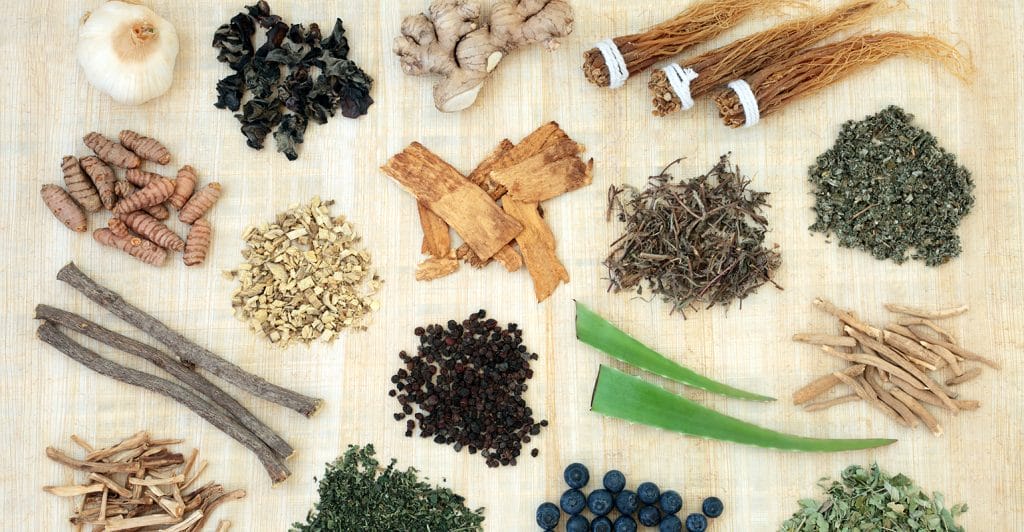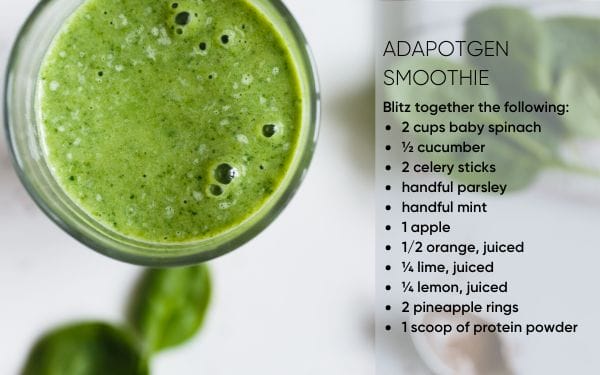Stress and Anxiety
One of the most consistent and reliably reported benefits of Ashwagandha, for example, is its anti-anxiety effects. Several studies demonstrate a lowered stress response, indicated by a drop in physiological measurements such as cortisol levels, blood pressure & heart rate. These are further supported by qualitative questionnaires, to take into account an individual’s state of mind, which has even indicated an improvement in the quality of life!
Research done in both endurance and resistance training contexts show Ashwagandha supplementation decreased stress response (i.e. cortisol), yet increased testosterone levels!
Similarly, Rhodiola Rosea seems to reliably reduce and mitigate the effects of sustained physical and mental exhaustion, which would justify its application in helping with the ‘burnout’ effect, seen after long periods of consistent stress (including prolonged lower intensity endurance exercise). Hence contributing to improved feelings of ‘well-being’.
Looking at how Adaptogens interact with our neuroendocrine systems and blunt overall perception of stress but also physiological measures, our money is on them being more interconnected. This notion is rounded nicely by many studies finding improvements in subjective well-being and reduced symptoms of depression.
Sleep
There’s also good evidence to show certain Adaptogens can be useful as a sleep aid, indicating a favourable impact on insomnia, sleep deprivation and quality. This is something we could all do with these troubling times as we struggle to embed our new routines and normal sleeping patterns are disturbed.
It’s difficult to say whether or not these benefits are occurring independently or as a result of mechanisms that connect them. Many of these effects are thought to derive from its very strong protective effects on our stress response.
Exercise Performance
Interestingly, in a couple of studies, Adaptogen (mainly Rhodiola Rosea and Ashwagandha) supplementation has been shown to elicit really encouraging improvements in exercise performance (usually aerobic-based events such as cycling), showing increases in power output, cardiovascular efficiency, muscular endurance capacity and decreases in perceived exertion and exercise-induced muscle damage.
Fatigue and Energy Levels
Rhodiola Rosea has been repeatedly studied on stressed, office-based workers as an anti-fatigue agent, which makes it quite applicable to a big portion of our client base! A noticeable reduction in fatigue is consistently noted when it is administered with research also showing reductions in perceived stress levels. This is furthered by small improvements in mood, anxiety and outlook.
This reduction in our stress response coupled with improvements in our energy and fitness leads to a consistent reduction in general fatigue and lethargy. There is really good mechanistic, observational and qualitative research showing promise here.
Immune Function
Often many claims are made about particular interventions and improving immune function. What must be recognised is that our immune system is made up of many more systems that work together. In order for any supplement or single intervention to be able to claim any material immunity benefits, we really feel that the intervention should be able to positively affect more than one single element.
Ashwagandha has not only shown positive effects on our white blood cells but also on T cell count, Natural Killer Cell and Anti-Oxidant profile showing it has a multifactorial effect on multiple aspects of our immune function.
Rhodiola Rosea seems to reduce inflammatory markers like C-Reactive Protein and Interleukin 8, representing a lessened demand on our immune system. It also increases our anti-oxidant profile, thereby increasing our available resources helping maintain our cells in healthy order.
Supplementation Recommendation
It’s recommended that these adaptogens are consumed with food, notably breakfast if possible. Adaptogens are also something to be consumed for intermittent periods throughout the day. Therefore, you may as well find a way to integrate it into your breakfast.
There are many other adaptogens that we haven’t specifically spoken about but are equally supported. Between them are a whole host of benefits to be had. The research group leading the way is the Swedish Herbal Institute where the R & D is being led by Dr Panoissan, who’s been brought over to London by Nutritionist, Matt Lovell. It seemed logical to get our supplements straight from the horse’s mouth. Aminoman, Matt Lovell’s supplement range, sells the highly recommended Adaptacat Adaptogenic Herb Powder.
Usually, I’d just chuck a 5g scoop into my gob and swish it around with some water! Since the recent pandemic, however, I’ve increased my number of doses throughout the day and mixed it with a load of other nutritious things in my morning (and lunch) green smoothie, check it out:
 Tiago
Tiago





